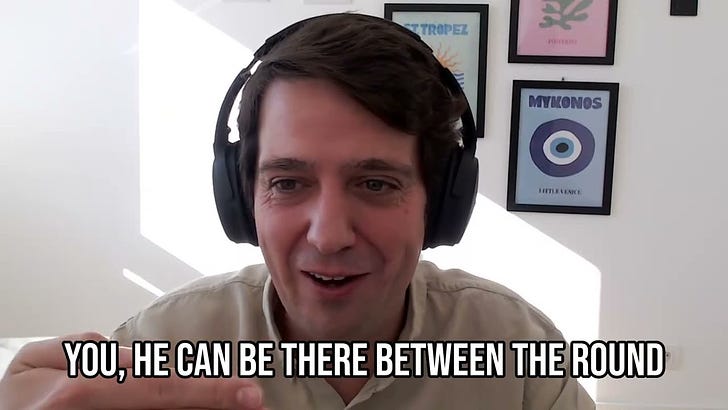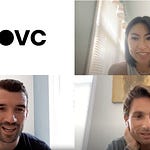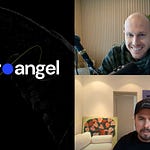Ah, the magic of interviews that leave us spellbound, hearts brimming with adoration. Such was the case for this interview as we dove into some of the topics that we love debating the most 🤓
But first of all, let’s introduce Eduardo Ronzano, super angel w. 120+ investments.
🕵️ A man of mystery - literally ran a fund named “Secret Fund” and have skirted the press and podcast interviews up until now.
💸 Has made 120 investments, primarily in France but with a good chunk in Western Europe and US as well.
👩👦 Got into venture investing thanks to his mom - you gotta listen to the episode to get the story behind that one.
👼 One of the most humble and brightest people I’ve had the pleasure to meet. Damn, he left me in a good mood!
With that, let’s get into it 🤓 and let’s start on one of the best metaphors for a venture investor that I’ve heard:
“You’re not a football coach, you’re a boxing coach”
- Eduardo Ronzano
Follow-on investments: to do them or not do them?
Eduardo preached a gospel sung by many, but lived by too few: As an angel investor or venture capitalist, your reputation reigns supreme. Your rep is the key to your success, a tarnished image can bring a cascade of undesirable consequences.
When your reputation falters, the flow of top tier deals diminishes, and even when opportunities do flow, securing a spot on coveted cap tables becomes an uphill battle. The repercussions are far-reaching.
The allure of doubling down on absolute winners seems logical in every sense. But you can quickly get into a situation where founders expect your participation in subsequent rounds. Consequently, the promise of doubling down quickly becomes a reality of upside dilution.
The reality is that most funds end up following on, on maybe 50, 70, 80% of their portfolio. And then all that cash gets diluted into companies that are not that exceptional anymore.
Eduardo Ronzano
Eduardo argues pursuing approaches on either of the extremes:
The first is refraining from follow-on investments altogether. By consciously opting out of subsequent rounds, you can maintain a discerning focus on new opportunities, allocating your resources to fresh ventures that hold untapped potential.
The other is consistently participating in every round, providing pro-rata investments or even doubling down on the pro-rata amount. Funds such as First Round and Point Nine have built their reputations on these models, supporting founders throughout their funding journeys, irrespective of their standing as front-runners in their portfolio.
The model you pick affects every bit of the firm you must build
To shine some light on the rationale for doing follow-ons, I think back to our chat with Carlos from Seedcamp, when discussing the evolution of their firm:
So in summary, I guess there’s only one thing to say: pick the model that works for you. But in all cases: Pick it consciously. Or as Fred Destin from Stride says in one of our upcoming episodes:
You have no excuse not to be sophisticated when talking about portfolio construction and reserves. All the knowledge is out there. Learn. This matters to LPs.
Listen to the full episode in the top or on Spotify 👇






















Eduardo Ronzano and Anthony Danon from Cocoa on reserves and all things angel investing